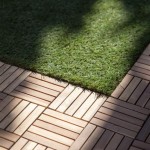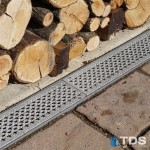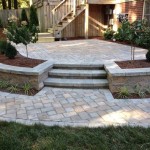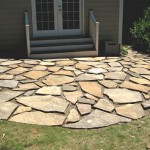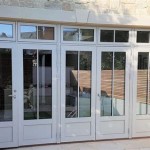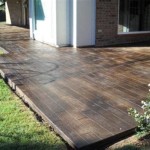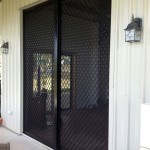Creating A Perfect Patio Enclosure In Jacksonville, FL
Jacksonville, Florida, with its beautiful weather and vibrant outdoor living culture, makes a patio enclosure a highly desirable addition to any home. A well-designed patio enclosure provides shelter from the elements, extends the usability of outdoor spaces, and can significantly enhance property value. However, successfully creating a perfect patio enclosure in Jacksonville requires careful consideration of local climate conditions, building codes, material choices, and professional installation.
The goal of any patio enclosure project should be to seamlessly integrate the structure with the existing architecture of the home while maximizing comfort and functionality. This begins with thorough planning, encompassing design considerations, regulatory compliance, and responsible budgeting. Factors such as sun exposure, prevailing winds, and potential insect intrusion must all be addressed to ensure the enclosure provides a pleasant and usable outdoor space.
Navigating Jacksonville's Climate and Building Codes
Jacksonville’s climate presents both opportunities and challenges when designing a patio enclosure. The city experiences hot, humid summers, mild winters, and occasional severe weather events, including hurricanes and thunderstorms. Therefore, the enclosure must be designed to withstand these conditions while providing adequate ventilation and shade during the hottest months.
Building codes and permitting requirements in Jacksonville are essential considerations. The city adheres to the Florida Building Code, which outlines specific regulations for construction projects, including patio enclosures. These codes cover aspects such as structural integrity, wind resistance, fire safety, and accessibility. Obtaining the necessary permits before starting construction is critical to avoid potential fines, delays, or even the need to dismantle non-compliant structures. The permitting process typically involves submitting detailed plans and specifications to the city's building department for review and approval.
Wind load requirements are paramount in Jacksonville, particularly for structures close to the coast. Enclosure designs must account for the potential impact of high winds and be engineered to withstand specified wind speeds. This may necessitate the use of reinforced framing, impact-resistant glass or screens, and specialized anchoring systems. Furthermore, the choice of roofing materials should consider both durability and aesthetic appeal, aligning with the overall design of the home.
Addressing drainage is another crucial aspect of patio enclosure design in Jacksonville. Proper drainage systems are necessary to prevent water accumulation, which can lead to structural damage, mold growth, and insect infestations. This may involve installing gutters, downspouts, and grading the surrounding landscape to direct water away from the enclosure. Additionally, consider the impact of stormwater runoff on neighboring properties and ensure compliance with local drainage regulations.
Choosing the Right Materials and Design
The selection of materials for a patio enclosure is a critical factor in determining its durability, aesthetics, and overall cost. A variety of options are available, each with its own advantages and disadvantages. The most common materials used in patio enclosure construction include aluminum, wood, vinyl, and composite materials.
Aluminum is a popular choice due to its lightweight nature, corrosion resistance, and low maintenance requirements. Aluminum framing is typically used in screen enclosures and can be powder-coated in a variety of colors to match the existing home's exterior. Screen enclosures are ideal for keeping insects out while allowing for ventilation and natural light. While aluminum is durable, it may not offer the same level of insulation as other materials.
Wood offers a classic, aesthetically pleasing option for patio enclosures. However, wood requires regular maintenance, including painting or staining, to protect it from moisture and insect damage. Certain types of wood, such as cedar and redwood, are naturally more resistant to decay, but they also tend to be more expensive. Wood framing can be used in various enclosure designs, including those with solid walls and windows. The insulating properties of wood can contribute to energy efficiency, particularly in enclosed patios with heating and cooling systems.
Vinyl is a low-maintenance alternative to wood. Vinyl framing is resistant to moisture, rot, and insects, making it a durable option for patio enclosures in Jacksonville's humid climate. Vinyl is available in a range of colors and styles and can be easily cleaned with soap and water. While vinyl is generally less expensive than wood, it may not offer the same level of structural strength or aesthetic appeal in certain applications.
Composite materials offer a blend of wood and plastic, combining the aesthetic appeal of wood with the durability and low maintenance of plastic. Composite framing is resistant to moisture, rot, and insects, and it does not require painting or staining. Composite materials are typically more expensive than vinyl but offer a longer lifespan and improved structural performance. When considering composite materials, it's essential to choose high-quality products from reputable manufacturers to ensure long-term durability and resistance to fading or warping.
The design of the patio enclosure should complement the architectural style of the home and blend seamlessly with the surrounding landscape. Considerations include the size and shape of the enclosure, the placement of windows and doors, and the choice of roofing materials. A well-designed enclosure should provide ample natural light, ventilation, and comfortable living space.
Screen enclosures typically feature aluminum framing with mesh screens, providing an unobstructed view of the outdoors while keeping insects at bay. These enclosures are ideal for creating a bug-free zone for entertaining or relaxing. Enclosed patios, on the other hand, may feature solid walls, windows, and doors, providing greater protection from the elements and allowing for year-round use. Sunrooms are a type of enclosed patio that typically features large windows or glass panels, maximizing natural light and offering panoramic views. The choice between a screen enclosure, enclosed patio, or sunroom depends on the homeowner's specific needs and preferences.
Ensuring Proper Construction and Installation
Even the best materials and designs can fall short if the construction and installation are not performed correctly. Hiring a qualified and experienced contractor is crucial to ensure that the patio enclosure is built to code, structurally sound, and aesthetically pleasing. Look for contractors who are licensed, insured, and have a proven track record of successful patio enclosure projects in Jacksonville.
Before hiring a contractor, obtain multiple bids and carefully review each contractor's proposal. The proposal should include a detailed description of the scope of work, materials to be used, projected timeline, and total cost. Check the contractor's references and review their portfolio to assess the quality of their work. It's also important to verify that the contractor has the necessary licenses and permits to perform the work in Jacksonville.
The construction process typically involves several stages, including site preparation, foundation work, framing, roofing, and finishing. Site preparation may involve clearing vegetation, leveling the ground, and installing drainage systems. The foundation provides a stable base for the enclosure and should be designed to support the weight of the structure and withstand wind loads. Framing involves constructing the walls and roof of the enclosure using the chosen materials. Roofing materials should be durable, weather-resistant, and aesthetically pleasing. Finishing includes installing windows, doors, screens, and any interior or exterior trim.
Throughout the construction process, it's important to maintain open communication with the contractor and address any questions or concerns promptly. Regular site visits can help ensure that the work is progressing according to plan and that any issues are addressed promptly. Once the construction is complete, conduct a thorough inspection to verify that the work meets your expectations and complies with all applicable building codes. Obtain all necessary permits and inspections to ensure that the enclosure is legally compliant.
Investing in a well-designed and properly constructed patio enclosure can transform a Jacksonville home, providing a comfortable and enjoyable outdoor living space for years to come. By carefully considering the climate, building codes, material choices, and construction practices, homeowners can create a perfect patio enclosure that enhances their property value and quality of life.

Impact Enclosures Best Reviewed In Jacksonville

Screen Enclosures Jacksonville Fl

Screen Enclosures Jacksonville Florida

Swimming Pool Enclosures Screen Room Sunroom Tropical

Screen Enclosures Quillco Jacksonville Sunroom Enclosure Co Builds Your Ideal

Swimming Pool Enclosures Screen Room Sunroom Tropical

Screen Enclosures Jacksonville Florida

Screen Enclosures Patio Screening Jacksonville Fl

Screen Enclosures Patio Screening Jacksonville Fl

Screen Enclosures Jacksonville Florida
Related Posts

